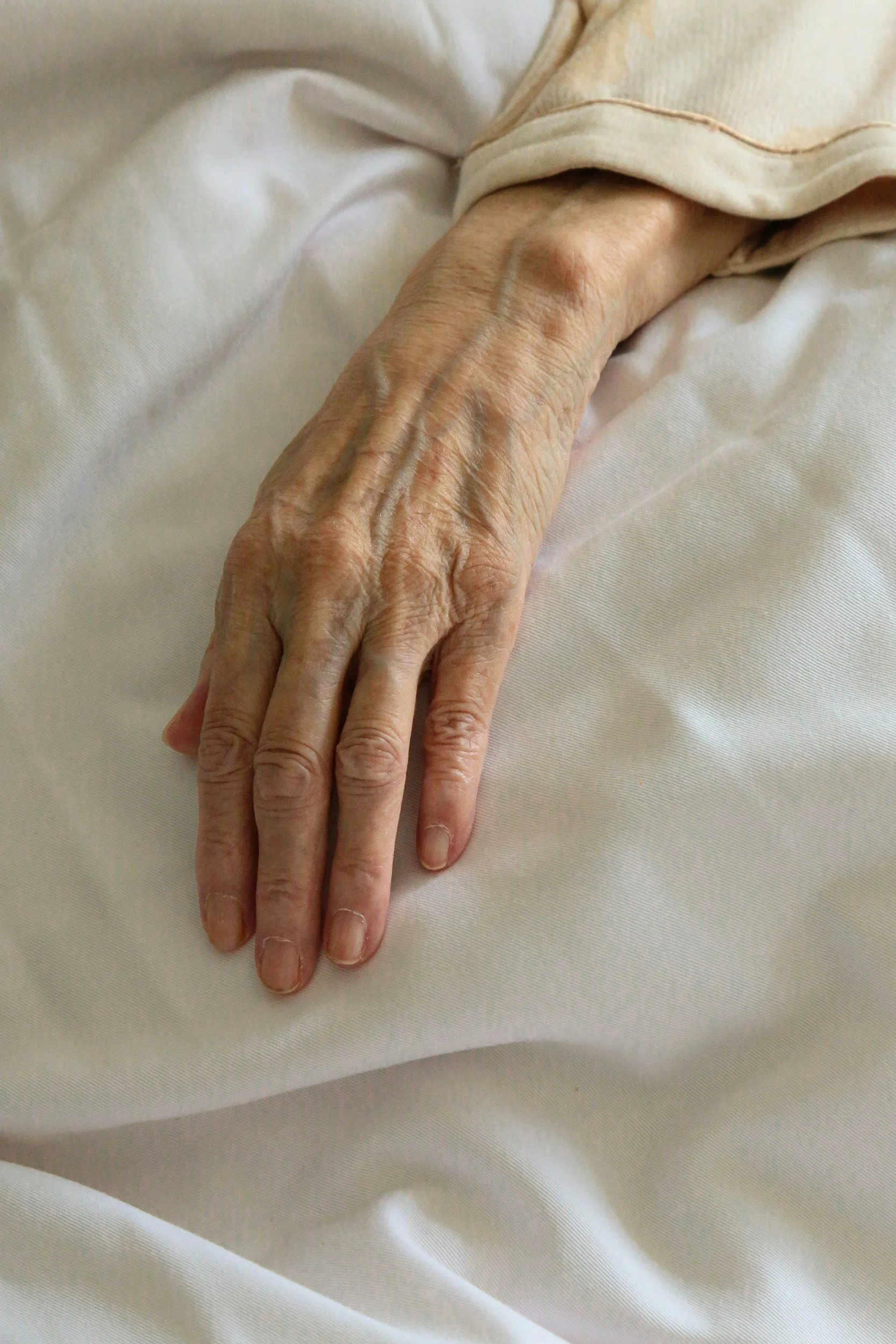Septic Miscarriage
We had a plan: if it happened at home, ostensibly in our bathroom toilet, because we were optimists even in the midst of that personal tragedy, I would not try to retrieve the fetus. Our midwife had suggested that we could have a ceremony, but that didn’t feel right for us. We were sad, collectively, often in entirely different ways, but we didn’t feel particularly in need of a ritual. Instead, I would just flush it, send it away, a subterranean passage between what we had imagined and what was actually happening, the unlikely closure we needed. I am a girl who knows how to stick to a plan. And so I did.
It took maybe 3 seconds, long enough that the vortex of water in the toilet washed our could-have-been baby away, but not so long that I couldn’t still picture the mostly but not entirely shapeless blob of blood and tissue, for me to realize that flushing it away
wasn’t, in fact, a good plan. We hadn’t grown up with septic tanks but were living in a not-so-rural house that had one. We didn’t think it through, like so many things. Instead of gone, clean slate, our could-have-been was now ensconced in our septic tank. A burial of sorts, I suppose, yet nearer than I had intended. Less done than I had craved.
Three months prior, on the day we first found out about the miscarriage, I overheard my partner on the phone explaining in that dreaded hushed tone that I had lost the baby. No, I haven’t, I'd sneered to myself in response then, I know exactly where the baby is. And now, filled with shock and regret, I inexplicably ran to the porch door, looking out in vain over the unmarked patch of grass where the septic tank was, knowing exactly again.
They don’t tell you that a miscarriage is a process, often a long and drawn out one if you decide, as I did, to opt out of the surgical procedure to scrape your uterus clean. There’s a gray area about what happens to the collection of cells after a miscarriage if you just let them stay where they are. Sometimes they get expelled with no fanfare. Sometimes they just get reabsorbed; no specific event occurs. While something about those cells
being digested by my body was haunting, I knew that this could-have-been baby’s DNA was already swirling through my veins, a permanent reminder, a house guest who promises a short stay and then just won’t leave.
I only learned of this fetal microchimerism because I was of “geriatric maternal age.” The requisite blood test at 10 weeks to identify genetic abnormalities discloses, as a bonus, the sex of the fetus. Curious how my blood could yield such seemingly non-me information, I started to Google. Turns out that our bodies host more than our own DNA; there’s the DNA from the people who birthed us, and for those who become pregnant, our blood has some of that fetal DNA mixed in, too. When my blood showed up with some Y chromosomes, well, that’s a boy.
Researchers have found that both maternal and fetal DNA can remain for decades, potentially indefinitely, merging with the host’s organs and tissue. What that stowaway DNA is up to isn’t clear. Some studies indicate that it’s protective; others, destructive. Maybe this could-have-been's DNA would keep me from developing certain strains of breast cancer, or maybe it would provoke an autoimmune disease. The sidewalk shell game of procreation.
As a parent now, I see how many avenues there are for us to be both infected and redeemed by both our mothers and our children.
After no heartbeat was found in a routine ultrasound at the start of my second trimester, I decided that absorbing a few more cells, further diluting my DNA with his, seemed bearable. After several weekly blood tests to track my HCG levels, which were falling and falling, the doctor said I didn’t need to return for further testing. We assumed the miscarriage-that-was-a-process must have wrapped itself up. I was being sprung from pregnancy-loss purgatory, released on my own recognizance.
I moved on. I assumed my uterus had as well.
And then, two months after that last doctor appointment, on the day of the flushing, my partner (who was my husband then; who is my ex-husband and partner now, though that’s a story for another day) had arrived home from a work trip to Israel. He was exhausted from a day of travel and jet lagged, aligned with another place’s time, and when he crashed, I stayed up eating too many tiny orange tomatoes that I had hoarded at that morning’s farmers market. I blamed those candy-like globes when my stomach started cramping. Trying not to wake him and impatient with my own tomato folly, I set up camp in the guest bathroom, the “white bathroom,” its monochrome serving as some respite as I curled up on its expansive colorless floor, allowing its too cold and too hard tile to support me. Maybe this is what they mean by cold comfort, I thought.
It seems naive now that I wouldn’t have made the connection between the miscarriage and the debilitating pain in my stomach, but so much time had evaporated, an entire Boston summer of too many too hot days.
After this expulsion, this exorcism, I walked around for weeks like a zombie--the walking dead, haunted by the ghost of a ghost-- trying to reorient all the moments of the previous months. The thought of unknowingly carrying our heartbeat-less could-have-been baby around with me for all of that time wouldn’t let me go. Perverse thoughts filled my free time--how my body had been occupied, how it was there while I tried to process its loss-- always less lost than I thought-- while I showered, while I resumed recklessly consuming sushi and deli meat and red wine, while I masturbated. It was like having a stalker I didn't yet know about.
I’m sure that a non-fetus-carrying parent experiences a miscarriage in a specific course of crushing grief that I don’t know. And I also know that I felt poisoned by this process, this loss, for years, well past the socially acceptable duration of feeling sad about it, never mind talking about it. I am prone to narrative, to hyperbole, too. And this narrative of being haunted and tainted by the genetic material of a mother who loved me not-quite-right and a baby who I seemed to have somehow betrayed weighed heavily on me. Weighs heavily on me? Yes. Seems true. Grief is nothing if not present tense.
-Caitlin Gorman
Caitlin Gorman teaches writing 1:1 to middle and high school students. In her writing and her everyday life, she thinks a lot about the personal politics of parenting and partnering. She lives in Santa Barbara with her partner of nearly three decades and their 7-year-old son.




















